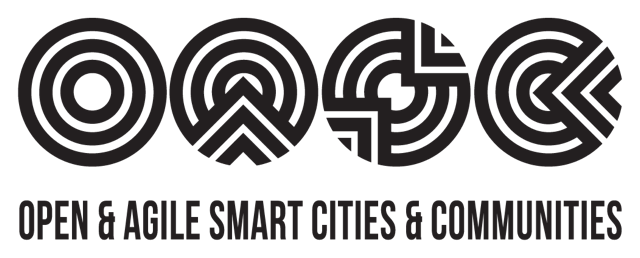Heidelberg / Brussels, Tuesday, 20 August , 2019 – As part of its overall efforts towards becoming a digital city, Heidelberg has joined the digital city network Open & Agile Smart Cities (OASC). Heidelberg is the fourth German city after Wolfsburg, Paderborn, and Delbrück, to join the network with the aim of promoting international exchange between digital cities.

“OASC is a very vital network, where a good mix of representatives from the decision-making and specialist level can exchange views on the Internet of Things,” says Nicole Huber, City Director of the City of Heidelberg. “Since OASC was founded very early on, there is already a wealth of experience in the network, from which German players in particular can benefit in their projects and contribute further to it.”
International members of the network include London, Vienna, Helsinki, Brisbane, and Buenos Aires. In total, 140 cities are part of OASC. The cities are organised in 30 regional chapters spanning the globe.
Common Data Standards for Agile Cities
The aim of OASC, together with cities and based on open technical data standards, is to promote the worldwide exchange of data-based solutions for cities.
The introduction of common data standards helps cities to exchange and make use of available data more easily, be it between individual city units or in dialogue with service providers and application providers. Such data may include, for example, information about the real-time availability of parking spots in the city or the current location of a bus.
At the same time, the use of open and common standards in the city also makes it easier to exchange service providers without being “locked in” by a provider (so-called “vendor lock-in”).
In the OASC network, cities decide in a transparent process which data standards are relevant and included in the organisations reference document. based on experience from pilot projects, such as the EU-funded SynchroniCity project.
“The German OASC network is still growing and we hope that our membership will help to increase the visibility of Open & Agile Smart Cities in Germany. Especially because a lot of knowledge is shared about open solutions within the network”, says Nicole Huber. “Since Heidelberg focuses on citizens rather than technology in the digitisation of urban processes, it is important for us to exchange and acknowledge different approaches. Also we value the differentiated prioritisation of different backgrounds of experience, and we are specifically seeking international exchange.”
Heidelberg plays a key role in the region. In 2018, the city was awarded the title of Digital Hub of the German state of Baden-Württenberg by the Ministry of Economic Affairs of the State of Baden-Württemberg. The ministry thereby awards “crystallisation points for digital innovations in the regions of Baden-Württemberg”. The city also cooperates with the other cities of the Rhine-Neckar Metropolitan Region in terms of digitisation.
Dr Davor Meersman, CEO of Open & Agile Smart Cities says: “It’s great to see that OASC Germany continues to grow. With Heidelberg becoming a member city we have a new strong partner in Germany. The exchange between cities about digitalisation is a key to success because although every city is unique, the challenges of digitisation often remain the same. “
OASC Members Meet at ‘Digital Week Kiel’
The German OASC member cities come together in Kiel for the Smart Cities Conference on 11 September 2019. The conference is jointly organised by OASC Germany coordinator Olaf-Gerd Gemein and the City of Kiel.
For more information and registration visit the website of Digitale Woche Kiel.
